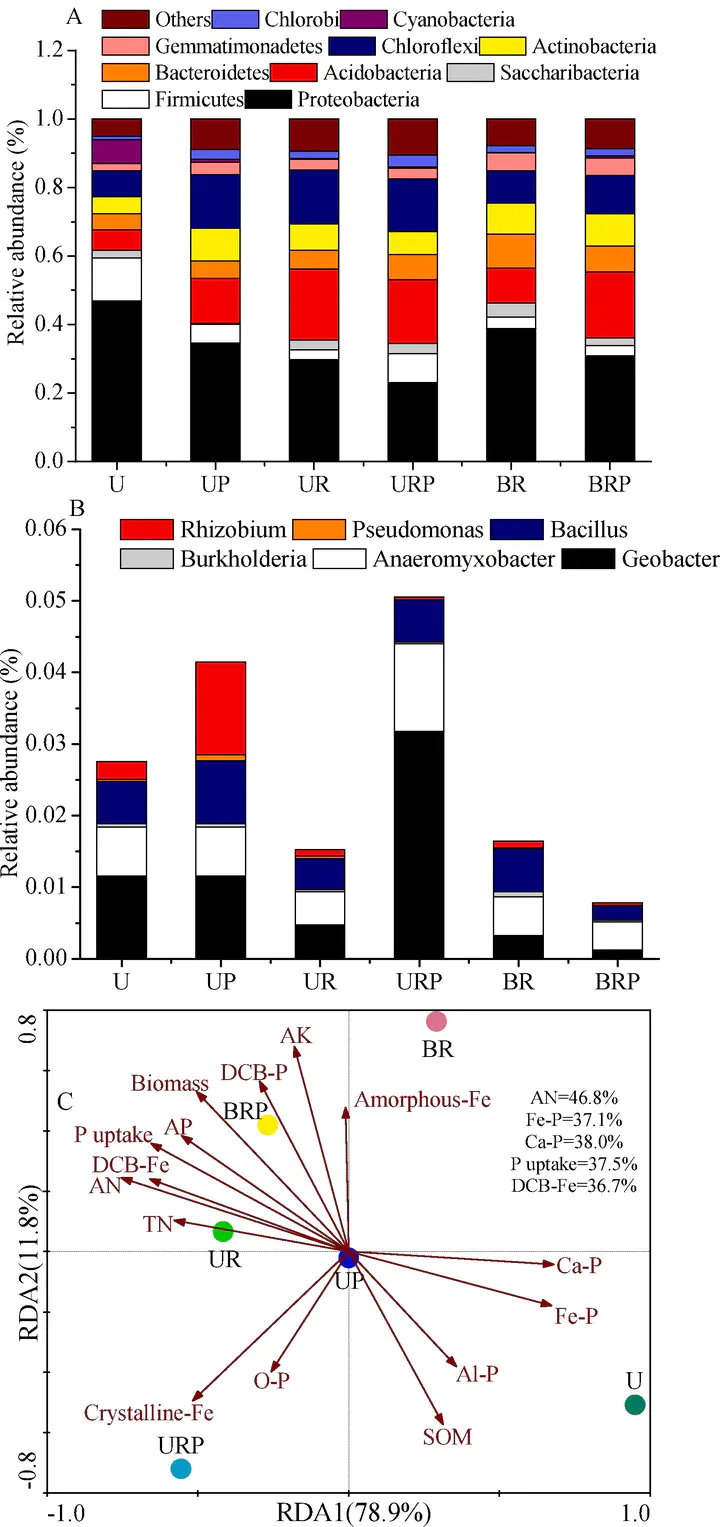Biochar impacts on phosphorus cycling in rice ecosystem

Abstract
Biochar can affect the phosphorus (P) cycle in the rice ecosystem through various pathways. Pot experiments were conducted to investigate the risk of P contamination and the P supply rate to crops with the application of maize straw-derived biochar (BM) and P fertilizer. The biochar increased 18.3% and 8.45% total phosphorus (TP) concentration in the low-P level and high-P level soils, respectively. The addition of biochar increased the phosphorus activation coefficient (PAC) by 9.00% at low-P levels, while the PAC was reduced by 10.4% at high-P levels. The results suggested that biochar could serve as either a source or a sink for P. The P concentration in the dithionite-citrate-bicarbonate (DCB) extracts on the root surfaces in biochar-treated soils increased by 467.1% and 46.1% in the low-P level and high-P level soils, respectively. It may cause by the acidification of soils near the root and the increase in Fe plaque. The results also showed the addition of biochar increased the DCB-P concentration and subsequently promoted rice growth. The biochar additions enhanced bacterial community richness and diversity, while the P supplementations inhibited bacterial growth. Redundancy analysis (RDA) showed that available nitrogen (AN), Fe-P, Ca-P, P uptake and, DCB extracted Fe (DCB-Fe) were significantly correlated with microbial community composition and explained 46.8%, 37.1%, 38.0%, 37.5% and 36.7% of the total community variability, respectively. This study provided evidence that biochar might affect the P cycle by impacting the microbial community composition and the Fe-reducing processes in the rice ecosystem.